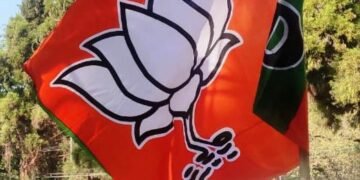The ‘Pradhan Mantri Suryodaya Yojana’, launched by Prime Minister Narendra Modi on January 22 this year, is a path-breaking initiative aimed at making electricity bills of poor and middle class citizens ‘zero’ while helping them make substantial gains from the rooftops panels, installed on their terrace. Under the newly launched ground-breaking initiative, solar panels will be installed on about 1 crore households and this will help them save upto Rs 18,000 crore annually. The beneficiaries will get 300 units of free solar electricity while they will have the flexibility to sell surplus power to commercial units.
Modi also spoke about highlights of this scheme during his public address in Guwahati on February 4 and said that the Centre was working on a plan on slashing the electricity bills of households to zero. Notably, Modi had announced the scheme on January 22, hours after performing the consecration ceremony of the grand Ram Temple in Ayodhya. While announcing the ‘gamechanger’ initiative, the Prime Minister had said that this will not just reduce the power bill of the middle-class but will also make the country self-reliant in the field of energy.
Days later, Finance Minister Nirmala Sitharaman in her Budget speech, announced the rooftop solar panel scheme for about 1 crore households. She informed that the government will launch a programme to help set up rooftop solar panels on about 1 crore households, under which they will get 300 units of free electricity. In case of excess electricity, they will have the option to sell it to power distribution companies. Besides free electricity to households, the scheme would also help augment the sale of electric vehicles as one could set up charging stations at home, Sitharaman had noted in her Budget speech.
The proposed Pradhan Mantri Suryodaya Yojana is set to be backed by a series of campaigns and promotions in coming days, where people will be encouraged to volunteer for the rooftop solar panel plan and in turn benefit financially from the mega scheme. The Rural Electrification Corporation (REC) has been designated as the implementation agency for the scheme and its board of directors has approved letters of credit of about Rs 15,000 crore each for eight central public sector undertakings that would set up the rooftop panels across states.
Implementation of the Pradhan Mantri Suryodaya Yojana is a herculean task but we must agree with the fact that harnessing solar energy for public consumption will be a turning point in attaining ‘self reliance’ in the energy sector. However, the scheme comes at a time when the target of rooftop solar installations of the government has not picked momentum. In May last year, the parliamentary standing committee on energy had said that against a target of 40 GW to be achieved by the end of 2022, only 5.87 GW of rooftop solar projects was installed, which is less than 15 per cent of the target.


























